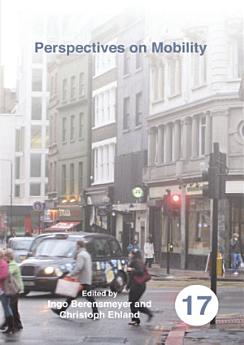Perspectives on Mobility
Ingo Berensmeyer · Christoph Ehland
ส.ค. 2013 · Rodopi
eBook
233
หน้า
family_home
มีสิทธิ์
info
reportคะแนนและรีวิวไม่ได้รับการตรวจสอบยืนยัน ดูข้อมูลเพิ่มเติม
เกี่ยวกับ eBook เล่มนี้
Literature as cultural discourse has always courted mobility. From the nomadic wanderings of the heroes of Homer and Virgil through the adventures of the medieval knight-errants to the travellers of modern times, movement and mobility have been constitutive elements of story-telling. Since writers have begun to explore the experiential dimension of movement their texts have embraced the essential changeability and instability of ‘mobile worlds’. In this sense literature reflects and processes the transformative force of movement on the perception of the world and is part of the broader cultural discourses of mobility. From the 1936 film Night Mail to the rapid movements of the dime novel detective and the metaphorical coding of automobility in Futurist poetry the essays in this volume offer new perspectives on the phenomenon of mobility at the intersection between the literary imagination and cultural experience. They explore movement as a decisive force of change in the story of modernity and show how literature in its representation of mobility simultaneously aims both to mirror and to grasp the phenomenon.
ให้คะแนน eBook นี้
แสดงความเห็นของคุณให้เรารับรู้
ข้อมูลในการอ่าน
สมาร์ทโฟนและแท็บเล็ต
ติดตั้งแอป Google Play Books สำหรับ Android และ iPad/iPhone แอปจะซิงค์โดยอัตโนมัติกับบัญชีของคุณ และช่วยให้คุณอ่านแบบออนไลน์หรือออฟไลน์ได้ทุกที่
แล็ปท็อปและคอมพิวเตอร์
คุณฟังหนังสือเสียงที่ซื้อจาก Google Play โดยใช้เว็บเบราว์เซอร์ในคอมพิวเตอร์ได้
eReader และอุปกรณ์อื่นๆ
หากต้องการอ่านบนอุปกรณ์ e-ink เช่น Kobo eReader คุณจะต้องดาวน์โหลดและโอนไฟล์ไปยังอุปกรณ์ของคุณ โปรดทำตามวิธีการอย่างละเอียดในศูนย์ช่วยเหลือเพื่อโอนไฟล์ไปยัง eReader ที่รองรับ





